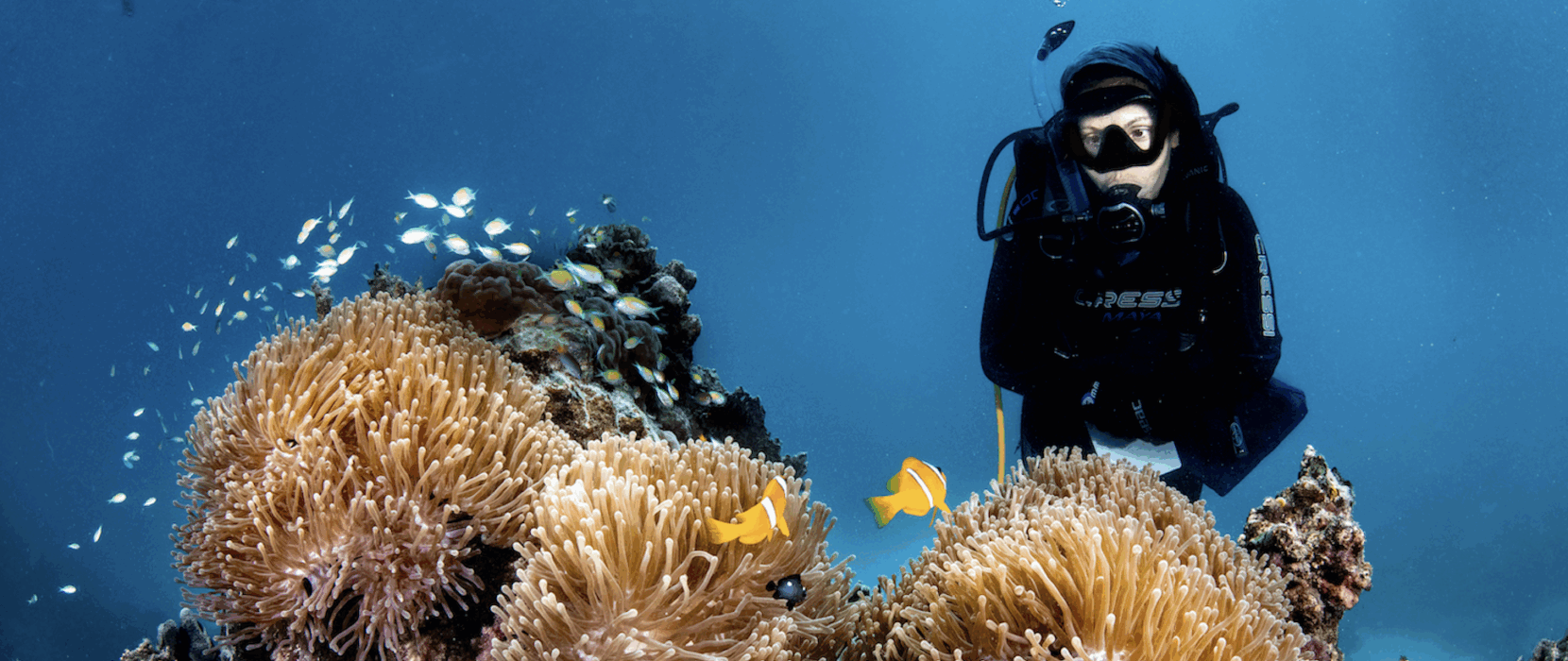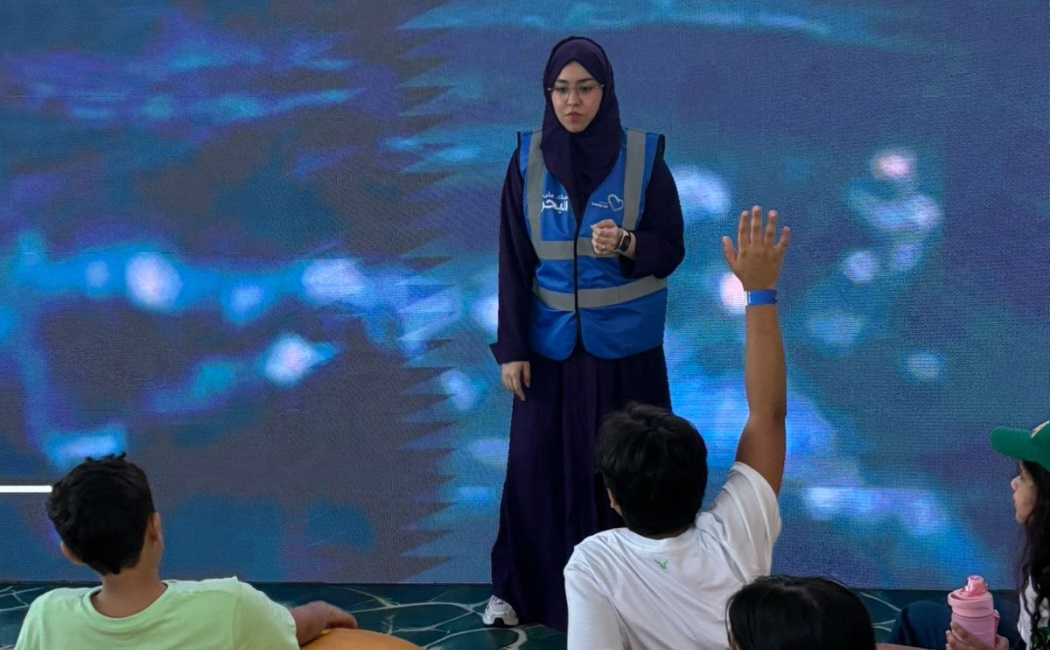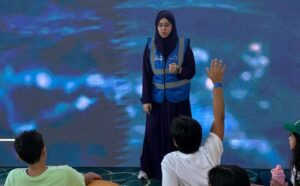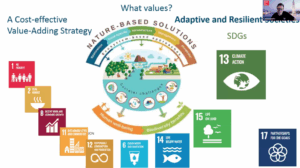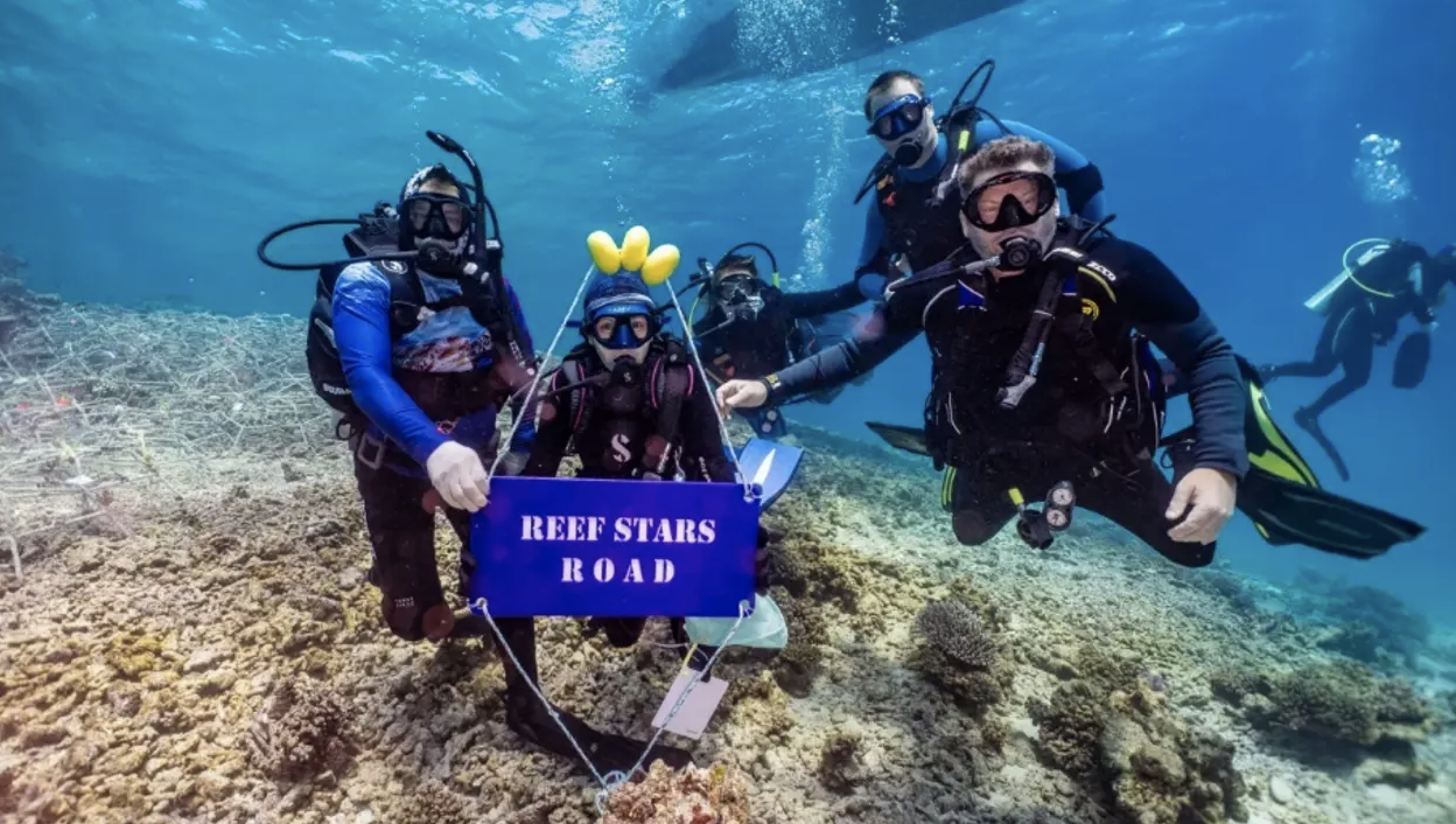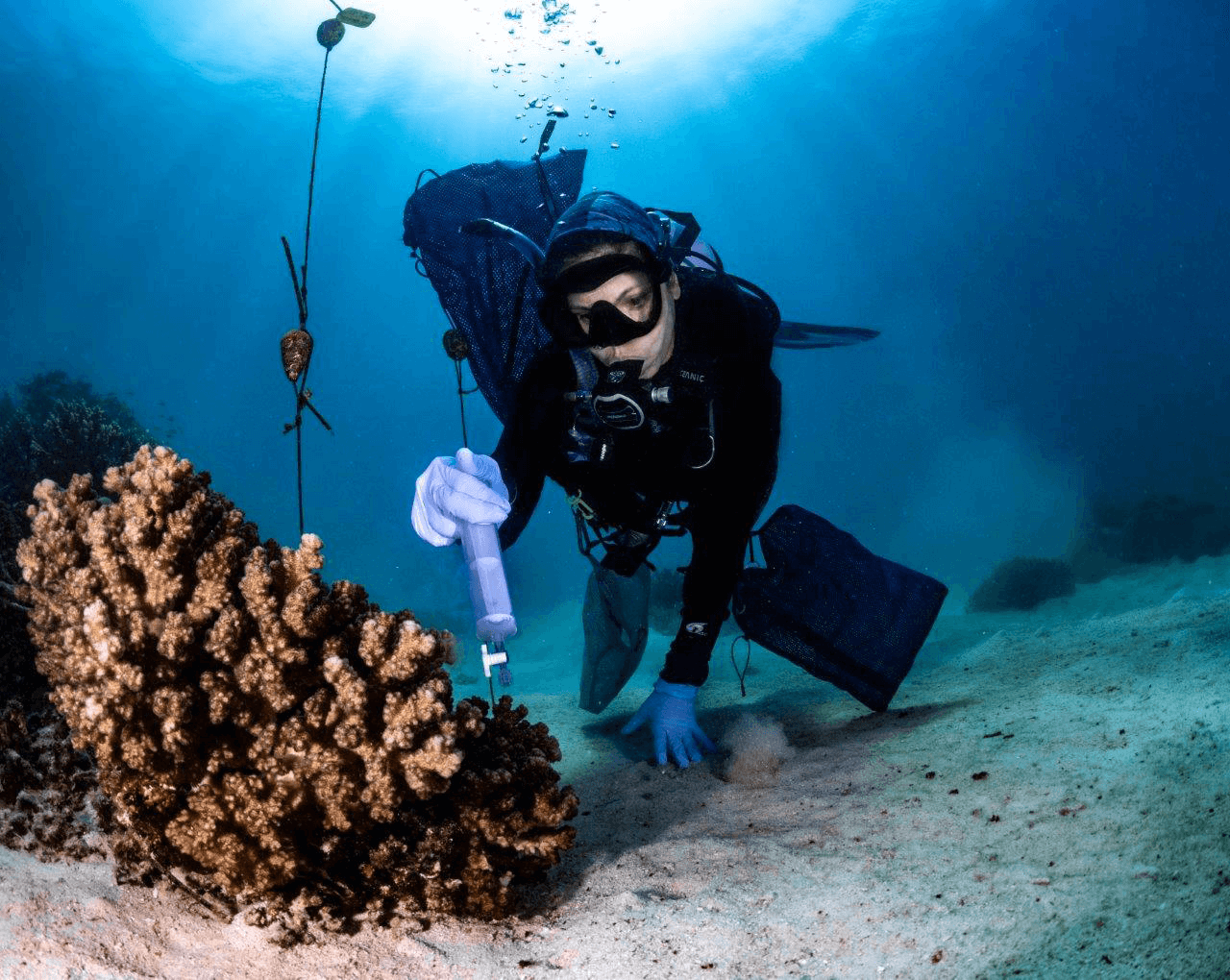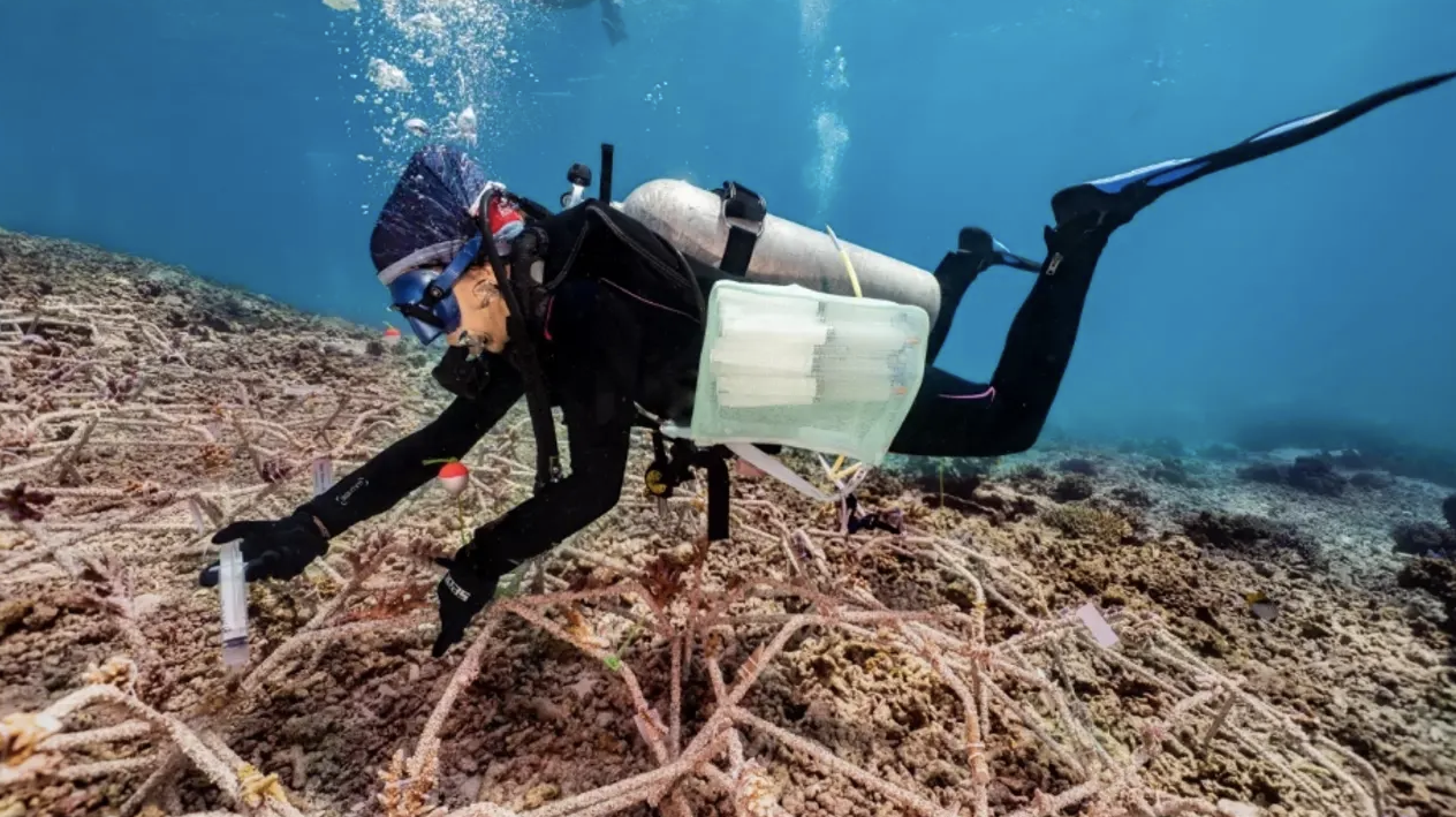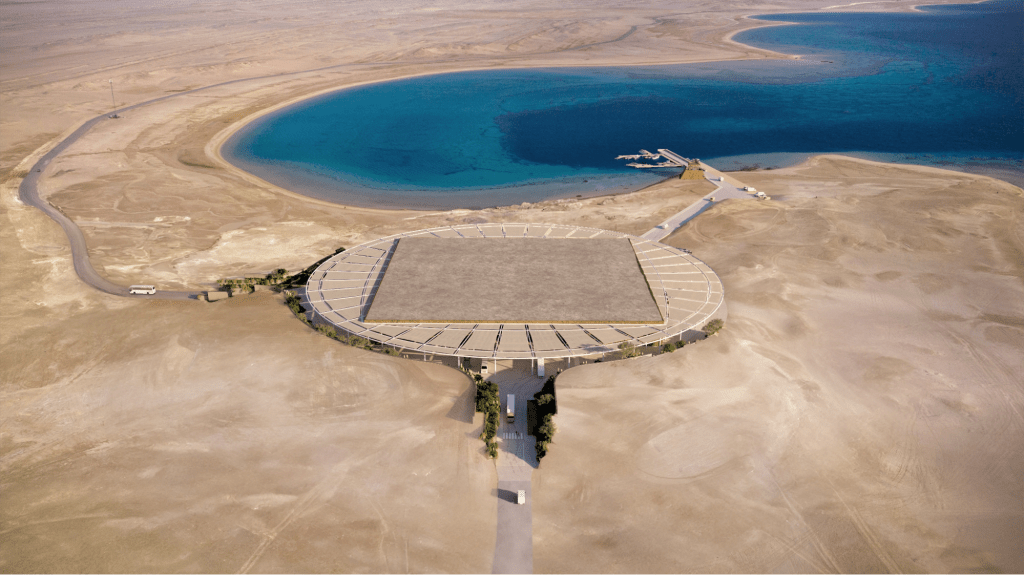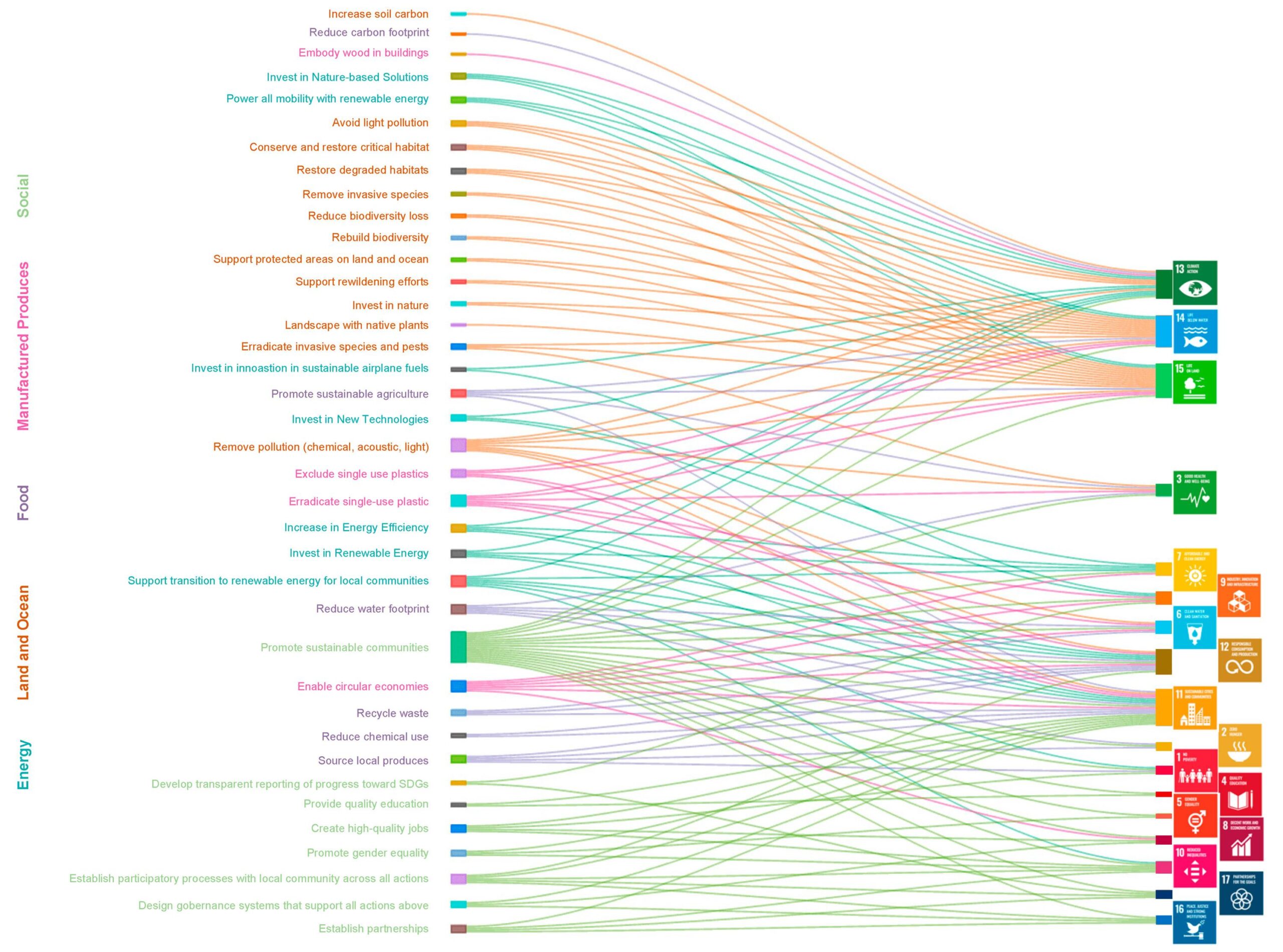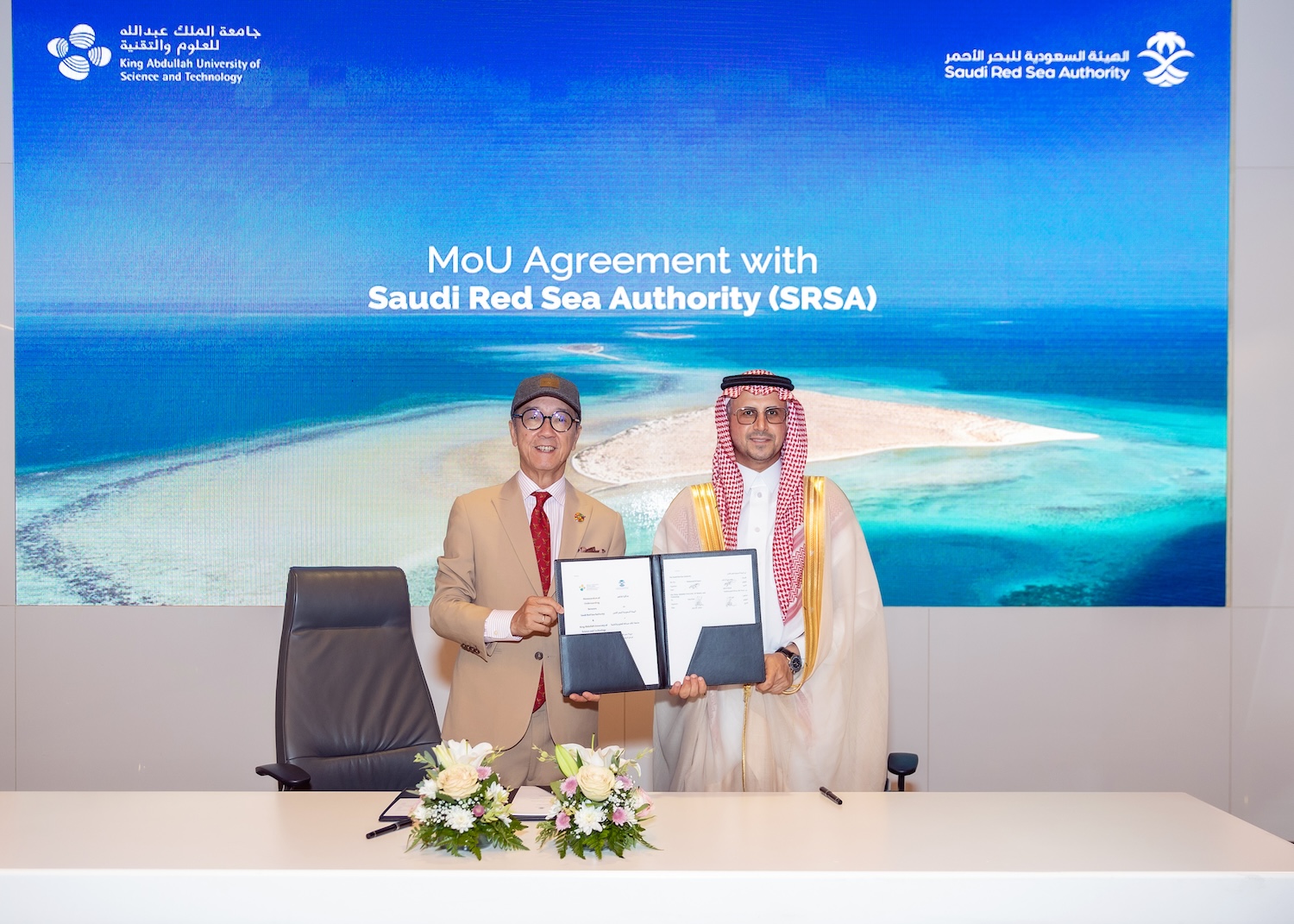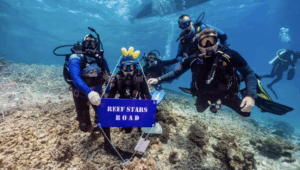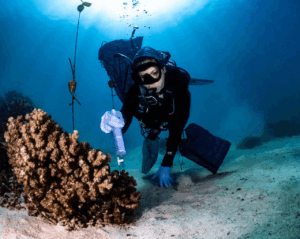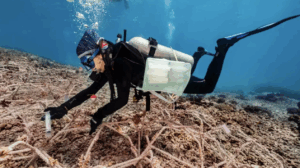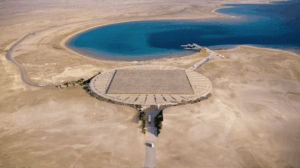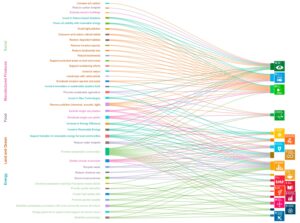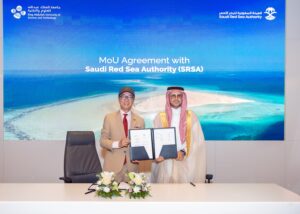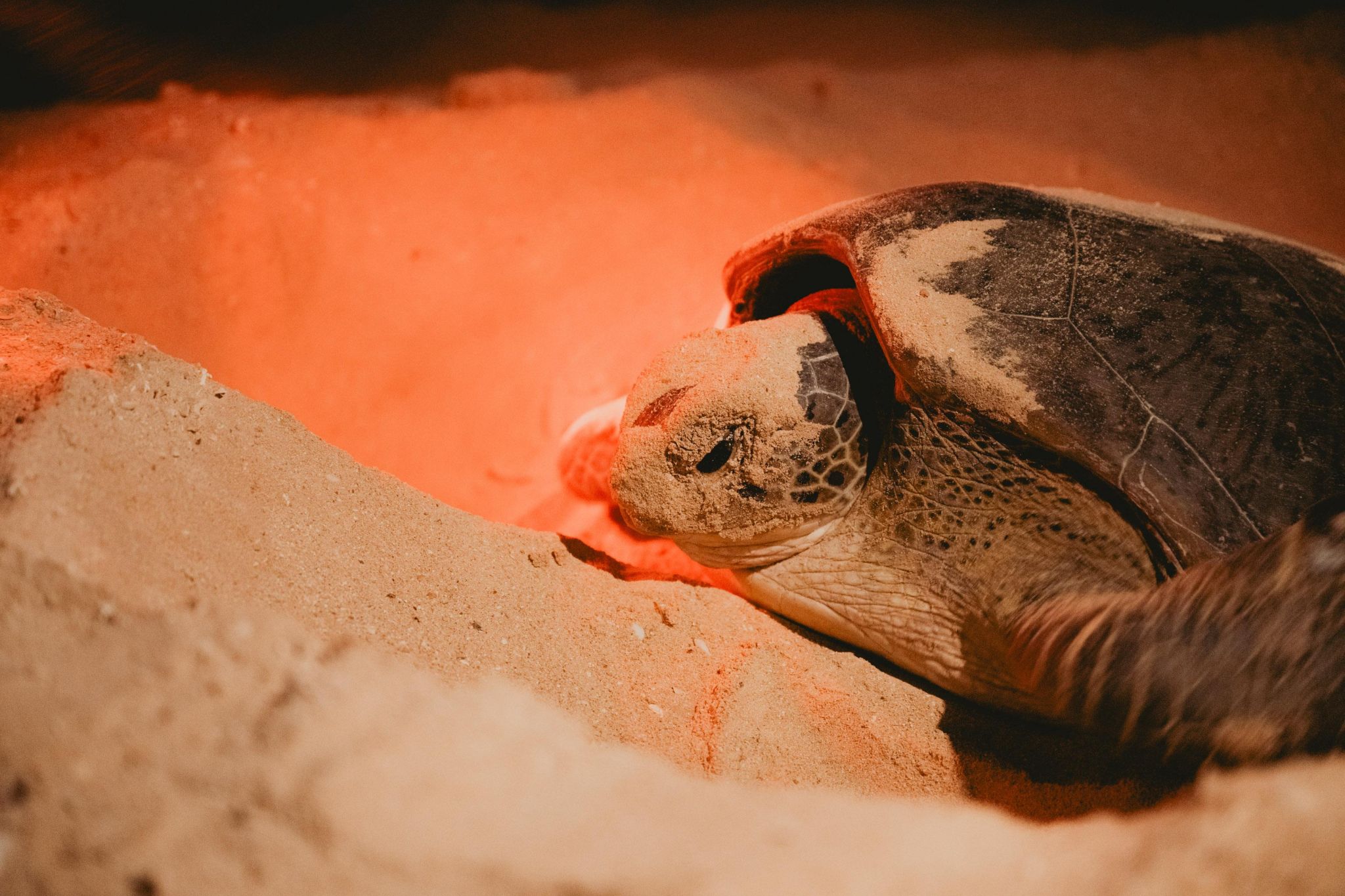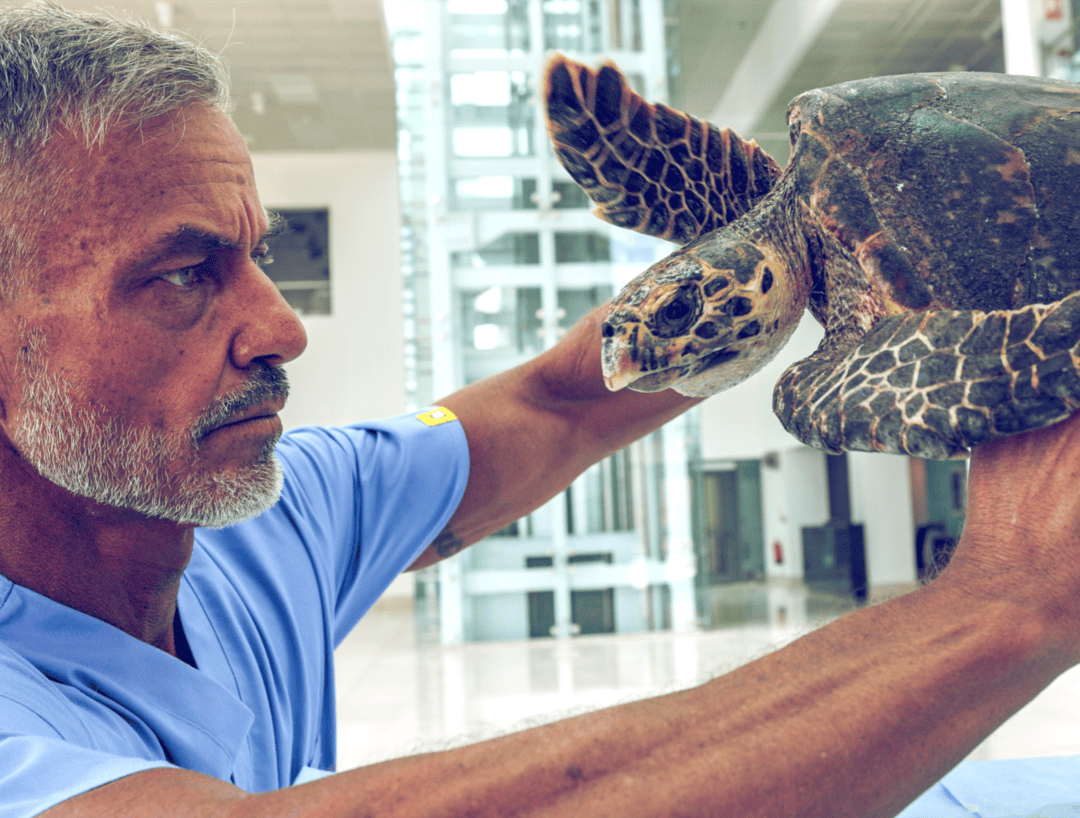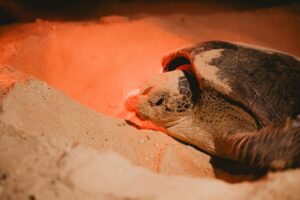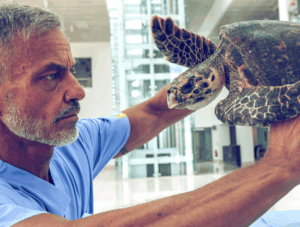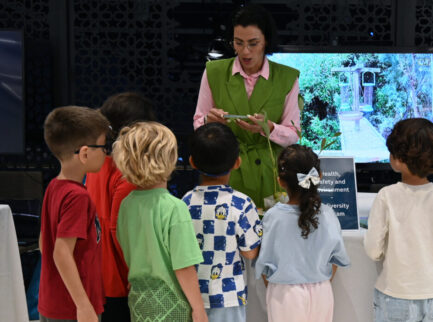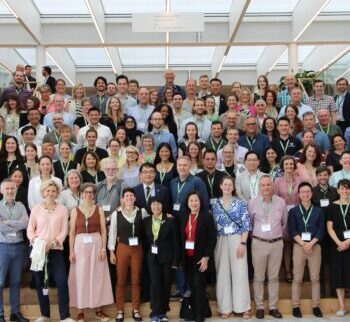In 2024, KAUST’s connection to the Red Sea deepened, reflecting an enduring commitment to aquatic stewardship—a principle embedded since the University’s founding. Rooted in its very genesis, this connection has evolved into a living relationship with the surrounding marine environment. Through education, community engagement, applied research, and cross-sector partnerships, KAUST continues to strengthen this bond, shaping a model of stewardship that integrates science, innovation, and societal impact.
Aligned with the goals of the UN Ocean Decade, these efforts extend beyond local waters to contribute to the global call for sustainable ocean management. The Red Sea—one of the world’s most biodiverse and resilient marine ecosystems—stands as both a national treasure and a vital proving ground for innovation. Its protection and sustainable use are central to the Kingdom’s transformation under Vision 2030, where ocean health underpins food security, climate resilience, and the growth of a vibrant blue economy. The following highlights showcase just a few of the ways in which KAUST is leading efforts to safeguard our oceans and advance a sustainable future for the Kingdom and the world.
Stewardship Through Outreach
Each year, KAUST celebrates World Ocean Day with a program of activities that engage both the academic community and the public, underscoring the university’s commitment to ocean awareness and sustainability. The 2024 program featured a movie screening and a guided tour of KAUST’s marine research facilities, which play a central role in the university’s conservation work. A highlight was the keynote by Professor Carlos M. Duarte, Distinguished Professor of Marine Science, delivered as part of Springer Nature’s SDG Talks global series. “Rebuilding Marine Life,” Professor Duarte shared an optimistic vision for restoring the ocean’s natural capital within one human generation. He emphasized the potential of practices such as sustainable fisheries, aquaculture, and responsible tourism in advancing regenerative blue economies—illustrating how science-based management, sustainable marine resource use, and community awareness can align to sustain both livelihoods and biodiversity.
Extending this awareness nationally through creative collaborations with industry and civil society, KAUST’s Marine Microbiomes Lab partnered with Albaik—the well-known Saudi food chain—to deliver an outreach event for the Jeddah community. The initiative raised awareness about the significance of the Red Sea, the environmental threats it faces, and the collective actions needed to protect this vital ecosystem.
Building on this mission to make science more accessible, KAUST researchers, including Professor Raquel Peixoto, were featured in “Beneath the Surface: The Fight for Corals,” a Warner Bros. documentary produced in collaboration with Red Sea Global, the Kingdom’s largest developer of sustainable tourism destinations along the Red Sea coast. Broadcast globally on Earth Day 2024, the film highlighted KAUST’s pioneering research on coral microbiome restoration and the development of coral probiotics to enhance reef resilience. Through this international platform, KAUST shared the story of Red Sea science and innovation with millions of viewers worldwide—demonstrating how scientific excellence can inspire global action and deepen public appreciation for ocean conservation.
Driving Innovation and Collaboration for Ocean Resilience
Beyond awareness, KAUST scientists are delivering tangible solutions to protect and restore marine ecosystems—translating research into real-world impact through collaborations with leading national and global partners. In partnership with the Saudi Red Sea Authority and Red Sea Global, KAUST researchers are co-developing conservation frameworks that embed sustainability into coastal development and regenerative tourism models, informing and developing practices that prevent damage to marine ecosystems. These collaborations bridge science, policy, and industry to ensure that economic progress reinforces—rather than compromises—ecosystem integrity.
KAUST is also pioneering new technologies for marine restoration. Through the Building Coral initiative, KAUST and Mars Sustainable Solutions introduced the MARRS method to Saudi reefs, training KAUST researchers in Reef Star fabrication and installation and deploying 150 Reef Stars with more than 2,250 locally sourced coral fragments. This collaboration exemplified international knowledge transfer, as KAUST researchers adapted the proven MARRS system to local Red Sea conditions. Building on this foundation, the team integrated coral probiotic treatments on a subset of outplants to test enhanced thermal resilience—combining global restoration expertise with KAUST’s pioneering microbiome science to advance reef recovery under climate stress. Together, these efforts merge scalable habitat restoration techniques with advanced microbial biotechnology to strengthen coral resilience against warming seas. Such engagements complement the KAUST Coral Restoration Initiative, the largest coral restoration project in the world, led by KAUST at NEOM.
Expanding KAUST’s contributions to NEOM, KAUST experts are leading several projects that reconcile development with environmental protection. The Biodiversity & Ecosystem Management Lab is developing a tourism stress indicator by establishing baseline environmental quality in pristine Red Sea regions, such as NEOM, and comparing them with urbanized areas like Jeddah. The project aims to quantify human and animal presence through environmental measurements, informing regulatory measures to prevent and minimise damage to aquatic ecosystems, strengthening biodiversity conservation, and guiding sustainable tourism and coastal ecosystem management.
Concurrently, KAUST experts are also supporting the Ras Baridi turtle conservation program, a NEOM-led initiative protecting one of the Red Sea’s most important nesting sites for endangered sea turtles. Complementing this effort, the newly established SHAMS-KAUST Veterinary Hospital—a collaboration with SHAMS, the General Organization for Conservation of Coral Reefs and Turtles in the Red Sea—provides critical care and rehabilitation for injured sea turtles, serving as a hub for local capacity building in marine conservation, and as a testing ground for cutting-edge rehabilitation technologies. Part of the Blue KAUST initiative, the hospital strengthens the link between science, education, and community action, showcasing how research and local engagement can work together to protect iconic marine species and restore ecological balance along the Red Sea coast.
These applied initiatives are underpinned by world-leading scientific research that advances technologies and practices to protect ocean life. One example is KAUST’s leadership in a global call for microbiome-based climate solutions, released across major scientific outlets as an urgent appeal to the global community. Using coral reefs as emblematic of vulnerable ecosystems, the article advocates microbiome-based technologies—such as coral probiotics pioneered at KAUST—as practical innovations to mitigate and prevent damage to aquatic ecosystems. These approaches aim to strengthen coral resilience to heat stress while reducing ecological losses that affect fisheries, tourism, and coastal protection.
At the same time, KAUST research informs improved marine management at larger scales. As part of a collaborative research study involving 48 institutions from 17 countries, KAUST researchers helped to uncover that climate-driven shifts in whale shark habitats are increasing their overlap with global shipping routes, raising the risk of vessel collisions. Insights such as these are necessary to guide the development of data-driven management tools that help the marine industry design safer shipping corridors and operational strategies, thereby minimizing harm to marine megafauna and promoting coexistence between maritime activity and ocean ecosystems.
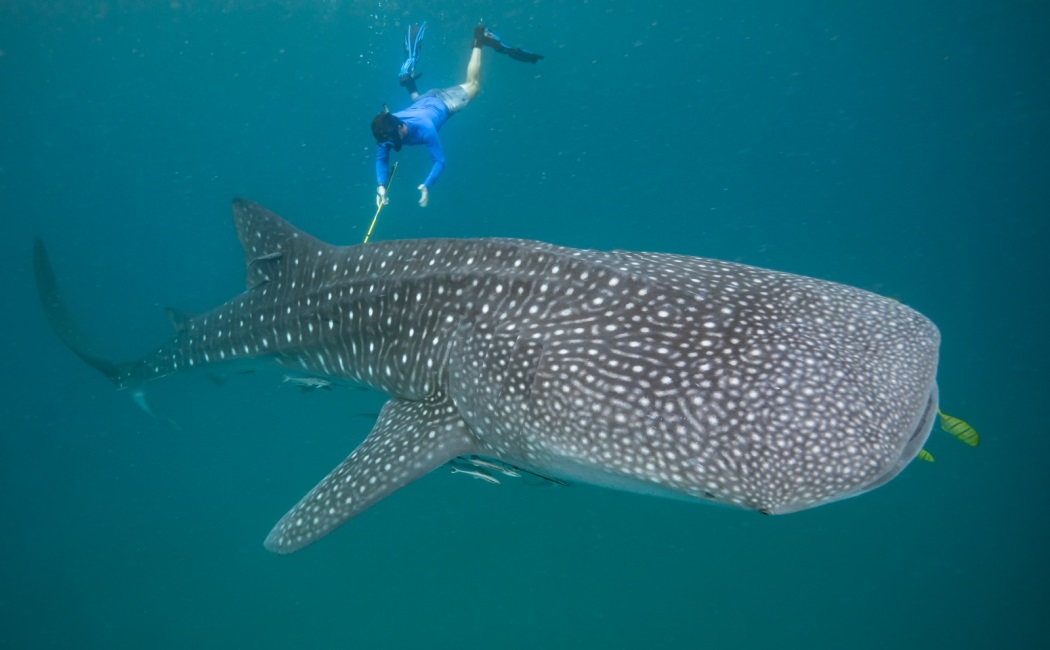
Together, these efforts illustrate how KAUST research links discovery to application—helping industry and policymakers adopt technologies and practices that prevent ecological damage and secure a sustainable ocean future. From the reefs of the Red Sea to global research networks, KAUST continues to turn knowledge into impact, uniting education, innovation, and partnership to safeguard ocean life and advance a regenerative blue economy—where thriving ecosystems and human prosperity move forward together.

